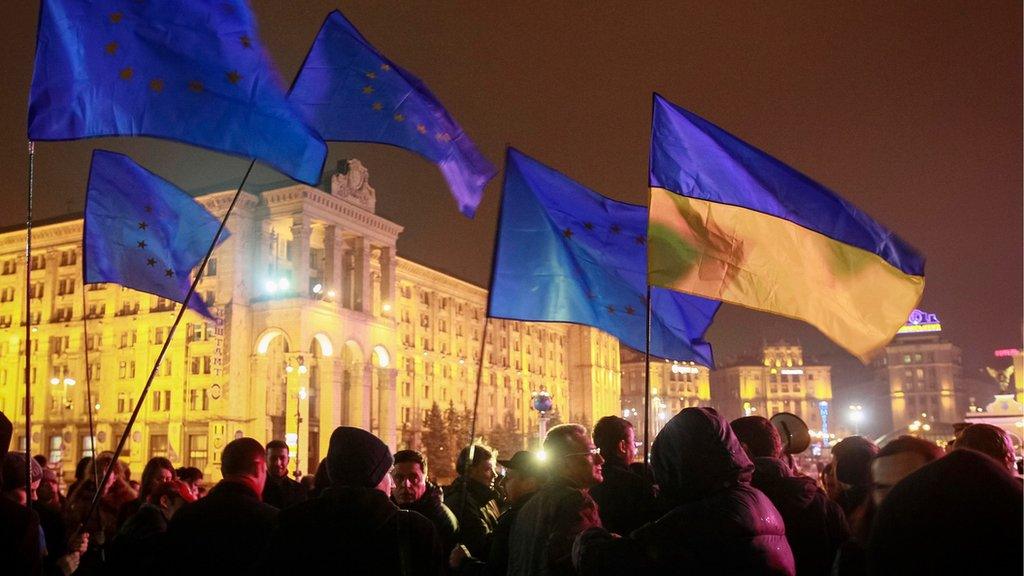Ukraine's EU options 'still open'
- Published
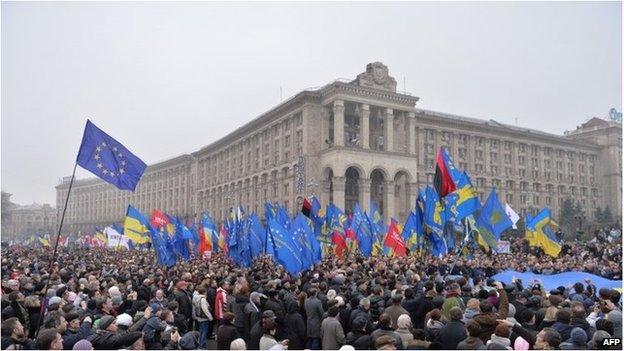
Despite Ukraine's apparent rejection of an EU treaty, and resulting protests on the streets, Kiev may still be hoping to keep its options open.
Few in Ukraine were expecting mass protests after Thursday's decision by the government to postpone the association agreement with the European Union.
Only about 1,000 people had come to Kiev's Independence Square on Thursday evening - first independent activists, then opposition leaders.
Opposition parties organised a rally on Sunday afternoon, but most of the protesters were ordinary people - Kiev residents who did not carry political flags, just the EU emblem.
But it just grew. Between 50,000 people (according to the police report) and 120,000 (the opposition claim), joined the demonstration in Kiev in support of the agreement with the EU.
Historical echo
This rally took place in European Square (Euromaidan in Ukrainian). That has not only given the protest its name, but recalls the Orange Revolution of 2004, which was known simply as Maidan, because of the protests in Maidan Nezalezhnosti - or Independence Square.
Political analyst Vadym Karasyov told BBC Ukrainian: "Euromaidan is more of a public phenomenon in support of the EU Association, but it is not political."
"The rally was much bigger than anyone could expect. Firstly, it was about Ukrainians' mass pro-European attitudes; and secondly, about opposition activism," said another expert, Volodymyr Fesenko.
Sociologist Andriy Bychenko tried to explain the difference between Euromaidan and the Orange Revolution.
"In 2004, people supported one person - Viktor Yushchenko, but now it's about a European choice and the EU Association," he said, adding he was "surprised" by the scale and spontaneity of the rally.
The Orange Revolution culminated in the fraudulent election of Viktor Yanukovych being overturned. Orange leader Viktor Yushchenko became president instead.
But another sociologist, Iryna Bekeshkina, explained that "people were very disappointed" when the success of the Orange Revolution was squandered by its leaders, and says few expected the public to take to the streets again.
The revolution has been almost completely reversed. Mr Yanukovych recovered to win the presidency; Mr Yushchenko was voted out after losing almost all his support; and another revolution leader, Yulia Tymoshenko, is now in jail.
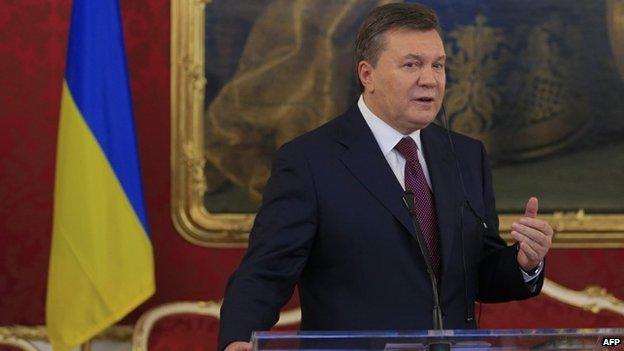
Viktor Yanukovych may think he can hold out for a better deal
It was the unexpected decisiveness of Prime Minister Mykola Azarov's move to postpone the association that stirred people.
According to recent polls, 54% of Ukrainians supported the deal.
However, "Euromaidan is unlikely to affect the government's decision on European integration," says Mr Fesenko.
"The president remembers the negative experience of 2004. If they bow to the street, they will show their weakness and could lose power," he said.
Still bargaining
Euromaidan could prompt Western countries to offer Mr Yanukovych better financial inducements and compensation for Russian economic pressure, Mr Fedenko predicts.
However, it would be difficult to do that before the summit in Vilnius on 28-29 November, when the EU is due to sign the Ukrainian deal, he says.
Political scientist Myhailo Pogrebynskyi agrees that Euromaidan might show Mr Yanukovych popular opinion - but is unlikely to undo the decision, which is based on some hard economics.
"We will lose too much in trade with Russia after the EU Association. It's an important factor for Ukraine and the government," Mr Pogrebynskyi tells BBC Ukrainian.
President Yanukovych has left most of the public statements to Prime Minister Mykola Azarov.
Experts think Mr Yanukovych is still bargaining.
"He is still in the very important negotiations, mostly with Russia. Anything he says could harm" the negotiations, says Myhailo Pogrebynskyi.
Vadym Karasyov agrees that Mr Yanukovych still has room to manoeuvre.
"It's like football - one is the defender, and the other could score the goal," he says.
Indeed the EU presidents made a point of underlining on Monday that their offer "is still on the table".
- Published25 November 2013
- Published27 January
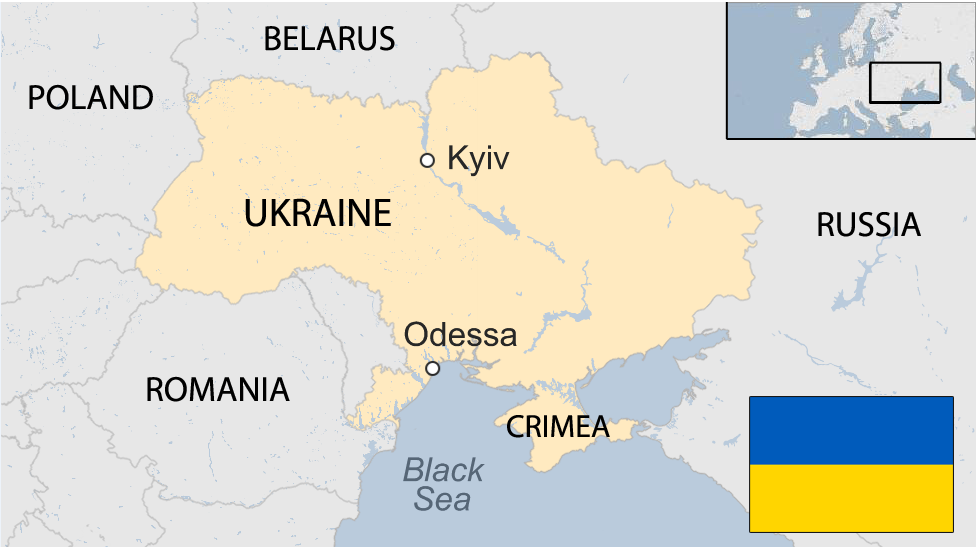
- Published22 November 2013
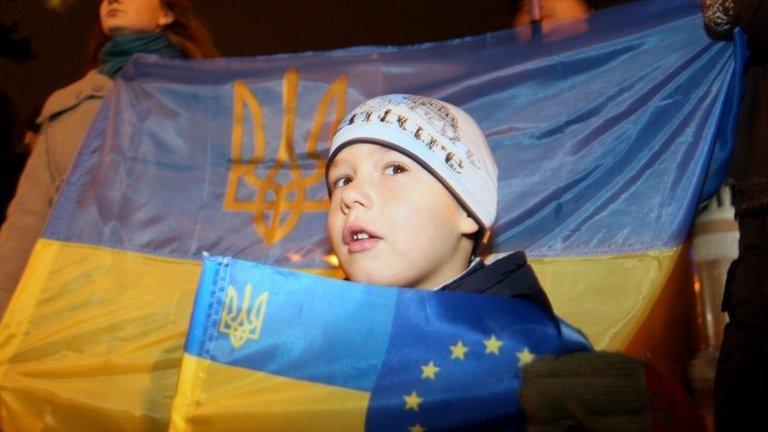
- Published22 November 2013
